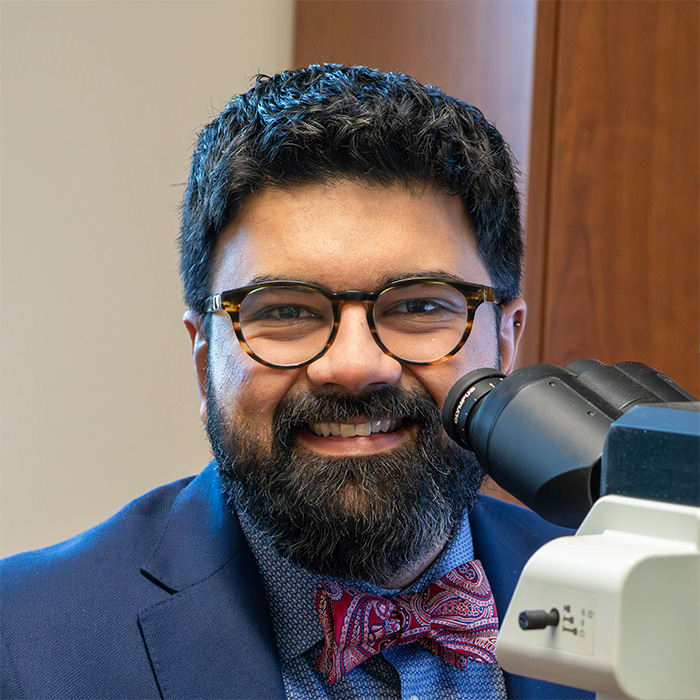
Kamran Mirza
Professor of Pathology, University of Michigan Medical School, Ann Arbor, Michigan, USA
False

Professor of Pathology, University of Michigan Medical School, Ann Arbor, Michigan, USA
If pathology is to truly maximize its impact on patient care, we must reimagine our role—not just as diagnosticians behind the scenes, but as active members of the patient care team. For too long, we have worked in the shadows. Our diagnoses guide therapies, shape prognoses, and drive clinical decisions, yet patients often never learn our names. That must change.
To move the field forward, I have focused my work on building bridges: between the lab and the bedside, between data and humanity, and between pathologists and the people we serve. One of the most meaningful ways I have done this is through my involvement with the ASCP Patient Champions program. This initiative pairs patients and caregivers with pathology professionals to share stories, raise awareness, and humanize the science of diagnosis. Through educational events and storytelling, I have helped bring patient voices into our community, reminding us that every slide we read represents someone’s life.
At Michigan Medicine, I co-lead our Patient and Family Advisory Council (PFAC) for Pathology, a group that actively collaborates with faculty to improve how we communicate results, educate patients, and create space for dialogue. With the support of our department, we have begun exploring pathology consultation clinics, where patients can meet with their pathologist to better understand their disease. These conversations have been powerful. Patients report feeling more informed, respected, and supported simply because a pathologist took the time to speak with them directly.
This work has also reshaped how I teach. I mentor my residents and students to see themselves not just as interpreters of tissue but as educators, advocates, and communicators. We talk about the “why” behind every diagnosis. We discuss how our words in a report may be read by a patient the moment they receive their results through a patient portal. We ask what we would want our own family members to hear.
The change pathology needs is already happening. It is in the way we speak, the way we listen, and the way we choose to show up. I am proud to be part of a movement that is making our field more visible, more human, and more present in the lives of the people we serve.
Pathology has always had the power to impact care. Now, more than ever, it has the opportunity to do so with compassion, clarity, and connection.
Dive deeper into the world of pathology. Explore the latest articles, case studies, expert insights, and groundbreaking research.
Receive the latest pathologist news, personalities, education, and career development – weekly to your inbox.

False
False
False